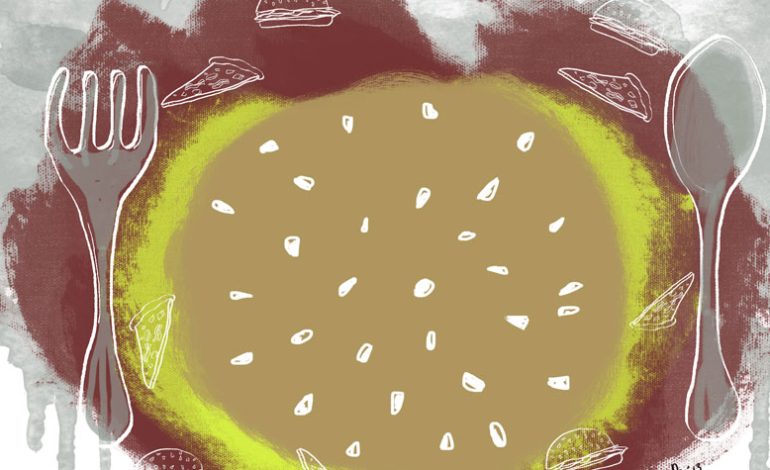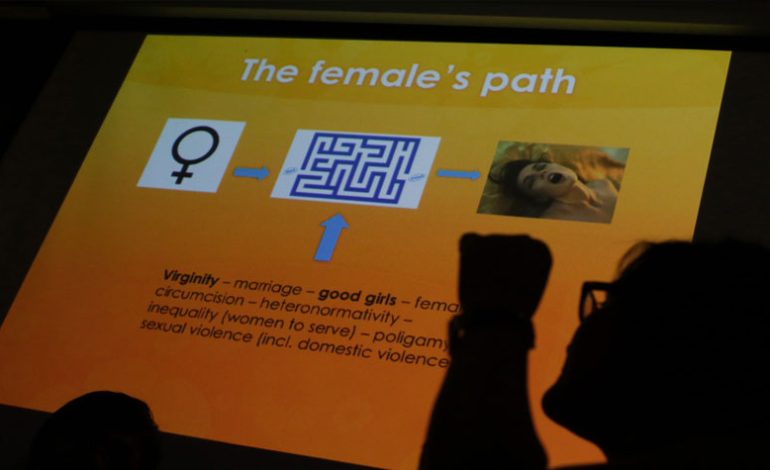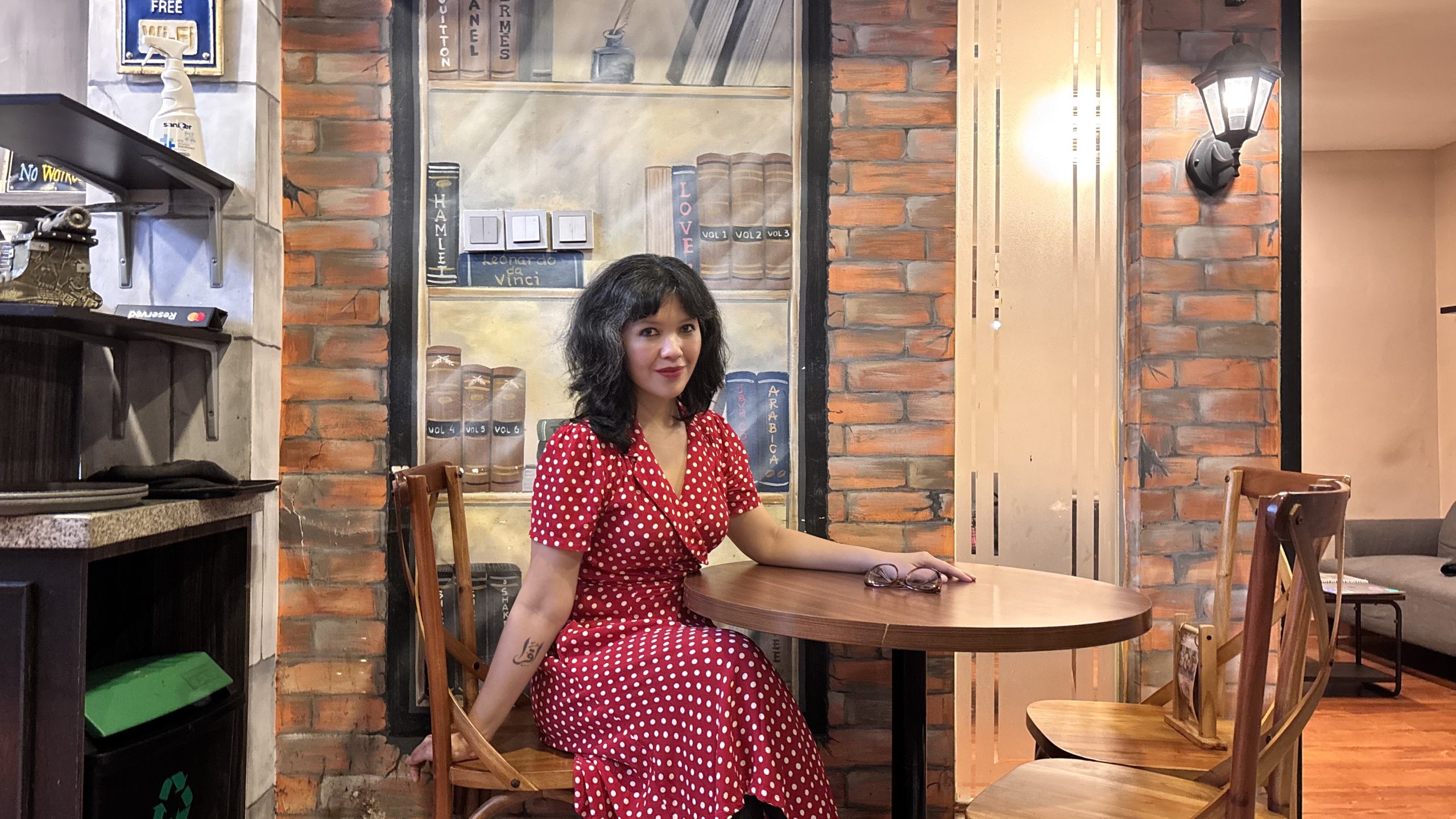Our Lives as Start-up Editors

The Lessons (Devi Says)
In the beginning there was an idea for a website.
Hera and I were sitting at a café, picking the brains of a guy who’s supposed to know a lot about the Internet and online habit. We told him we wanted to create our own website, a blog, like Huffington Post or Gawker. Or something. The idea was still at a very vague stage.
Hera and I have known each other for many years from being journalists in Jakarta. Long time ago we briefly worked in the same newsroom at The Jakarta Post, though I moved to a different newspaper shortly after. But since then we have continued to be connected socially.
This was something that we had done several times since we decided to create a website. We’d meet with someone – a web developer, a digital specialist or just someone who knows a lot about the media – and discuss ways to develop this idea of ours. More importantly, we wanted to know whether they would like to be on board. There were one or two people who expressed interests, but because there was really no money involved, their involvement, understandably, did not amount to more than verbal commitments.
This current conversation with the guy, however, was going somewhere. He suggested that we went for niche readers, since we had neither the money nor the resources to go big against the existing news website. We toyed with the idea of something involving the art community, but neither of us really has a strong art background.
How about something for women? But there were too many websites targeted for women already. And, personally, I never read women’s magazines or websites, because I am not interested in fads, fashion, celebrities and simplistic how-to pieces that tell women what they probably already know anyway. I often think these magazines treat their readers as a one-dimensional, gullible consumer of everything. Their ideal reader is someone who spends a lot of time fretting about how to look good and how to make everyone happy, and who goes out shopping to make themselves feel good.
And that’s when the idea struck. Why not create something for women like me, like us?
“We” are a niche market. There are many aspects of woman-hood that we can cover from this side of the spectrum. We thought it would provide a good read for strong women, because it would be truthful, courageous and daring, but it would also be quirky, fun and entertaining.
Hence Magdalene was conceived – its embryo. It would take us a few more months – and, by that time, we were joined by another person– before we actually came up with the name and the tagline.
The name “Magdalene” wasn’t our first choice. We had played with a few possibilities (“Raisin Sisters” – inspired by that Tori Amos’ song – was one, but we thought the word sister could sound rather flaky and might put off potential male readers. Plus, we found out there’s already a bikini company by similar name).
Finally we chose “Magdalene” because it has an interesting, almost paradoxical connotation. First, there is the biblical association, of course, a saint, a courageous woman, but one who has also been the center of much speculation, especially in popular culture (unsavory past, the lover of Jesus). We were sold. Not because of the religious connotation, but because the name was intriguing and has a powerful ring to it. And it’s easy enough to pronounce for both Indonesians and English-speaking people. So we bought the url (using .co since .com was owned by a Christian group or website), but the project wasn’t progressing much further after that.
Then a few months later I met a graphic designer, while working for a project with the World Bank. In her late twenties, she has a strong work ethic, enjoys strong coffee like me, and was pretty much the kind of young woman who would read Magdalene. I told her about our plan and asked if she’d be interested in designing our logo and website. She jumped at the opportunity and got her friend, a web developer, to join us. They worked fast and things then began to shape up. Most importantly, we treated them as professionals, not friends. We paid them (though she has continued to stay on and consult us freely as a friend since).
This is the first lesson I learned. As founders you won’t mind working pro-bono – after all, you’re spending your personal money and devote your time on the project – but don’t expect others to come onboard voluntarily. We had designer and web developer friends who had said they would help us and assured us money was not an issue, but we could not get them to deliver on their promises, because there really was no incentive.
It is also important to find the right people to work with who share your values and your sense of esthetics to translate it into a product you have in mind. We were lucky that we found Stu, our designer, and Kennard, our web developer. They’re young, smart and hard workers, and they seem to immediately get what Magdalene was all about.
So Magdalene went live in September 2013. We immediately received some positive feedbacks, praises, even, that made me think, why hadn’t we done this earlier? Our start-up capital was less than US$1,500.
In the first year we decided to publish 4-6 stories once a week, every Thursday or Friday. This decision was basically to accommodate our layout, which is quite static and is visually strengthened with illustrations (made by our wonderfully talented illustrator Adhitya). It gave us time to write or seek contributions.
This also seemed to work better for us, as we all still had other jobs (more than one sometimes), from which we actually earn our livings. I would usually devote one or two days in a week to edit the stories. This we did for about a year until we decided to start publishing every day (at least one story a day) to make the site more dynamic. It helps that by this time, we have had pretty regular submissions of stories from contributors. And that’s the second thing I’ve learned.
People like Magdalene because it provides them with unique perspectives. It’s really inspiring to go somewhere and meet strangers who admit to read Magdalene and even adore it. Whether with stories on women or LGBT-related issues, or even travel or exercise stories, we provide unconventional takes on things. And because of this, our readers feel compelled to tell their stories too. We have, unintentionally, provided a platform for voices not channeled by the mainstream media. So, distinctive content that speaks to its audience encourages readers to contribute.
For this same reason and to widen our reach, we decided to go bilingual. We first started publishing some Bahasa Indonesia articles (mostly translation of the English version) during the election season last year and found that it attracted a lot of readers. So now we are open to more content in Bahasa Indonesia.
In the first year we’ve also managed to form some significant partnerships. One of them is with UFM 94.7, a radio station that is part of the Femina Group. We have a weekly talk show with them during which we would discuss an issue, mostly inspired by one of our published stories, do phone interview with related sources, and have listeners interact on Twitter and phone messages.
This show apparently has high engagement rate because some of the issues are quite new to their audience. This year it has been moved to a prime-time slot at 5PM from previously at 7-8PM and extended to two hours long. This show has helped us to engage audience from other platforms that we would’ve never had access to online, and we would like to draw from the radio station’s community of audience for some off-line collaborations.
So, third lesson: Partnership, partnership, partnership.
But with all these progresses, are we making enough money for us to quit our day jobs? The answer is a definite no. In fact, Hera and I have been spending our personal money for Magdalene’s monthly overhead costs. Magdalene has income, but so small it does not merit mentioning. But here’s the good news: the potential is there, but we need to be more focused on our monetizing efforts. And to do this, we need someone with a clear vision of what needs to be done and a go-getter.
Which led to our fourth lesson: Be clear from the start who does what and make sure it is really carried out. Effective labor division creates a good synergy in any organization. But most importantly is that everyone sticks to their role and does their best to contribute in order to build trust.
When someone in your organization has no respect for the efforts being done by the others, and is unable to honor their commitment, it creates imbalance and unfairness and leads to resentment. We started out with three people, but as we progressed, Hera and I felt strongly that the workload was not equally shared by the three of us, a fact that was eating the both of us.
Finally, after over a year, she and I confronted this issue with our partner. We wanted to contain the damage by ensuring that everything would be settled amicably. All expenses would be immediately reimbursed. We thought surely since we started out as friends; we should end as friends. As it turned out, it wasn’t so simple. Long story short, the problem was resolved, though not without some frictions, and we continued.
But this is the most important lesson we learned: when joining up with other people on a business venture, do a thorough due diligence. Just because you know them socially doesn’t mean you really know their professional capacity. Check the person’s professional reputation, often this is a good indicator of his or her work ethic. And, most importantly, have a frank talk with them to get a sense that they share your passion and commitment. Hera and I learned the hard way, but it’s all for the better.
Magdalene is young, but we believe it has much potential. This year we will continue to roll out our business plans and our editorial expansion. And we are also on the lookout for investors for a working and meaningful partnership. We may be short in money, but we are long in passion and commitment. We believe in and love what we do, and I can’t wait to see where this journey will take us.
The Jugglers (Hera Says)
I work as a web editor/manager at a state-owned foreign news agency, working from 9 to 6 until my colleagues in the northern hemisphere take over.
Working practically by myself, my responsibility covers everything it takes to get the website up and running, content-wise. I curate stories, translate them, edit articles sent by the correspondents, upload all of them along with video and audio files, find photos that match and manage the social media channels. The latter includes filtering comments on Facebook, which is not easy as we have two million followers.
The job is not too complicated but it certainly takes up a lot of my time and gets me tied up to my desk the whole day. When the day is over, all I want is practically lying on the floor with my face down, relaxing my tired back from sitting for hours. The next day, the almost exact same process will repeat itself. And on Sunday morning, I have a four-hour shift.
When Magdalene was born, just like a baby, it changed my and Devi’s schedules and added up to the hours.
But it actually changed our lives longer before that. It was when Devi and I decided that we would create a website even when we didn’t know what it would be like exactly, when we knew that as readers we weren’t satisfied with what we found in the local media, and that the journalism jobs that we did were not that fulfilling either.
Once the idea was rolling and we were sure that this was what we were going to do, my career decision orbited around Magdalene. And I believe Devi has done the same thing.
As this new project barely makes any money, we certainly still have to cling on to our jobs to also pay for the expenses. I then took a job as a senior editor for a publication funded by a prominent businessman in hopes that he would be interested in funding Magdalene. He wasn’t the slightest, and the job was too overwhelming, so I left and looked around for another job that could help Magdalene. When I found my current job, I thought it was perfect, as I still wanted to work in the media and thought I could learn a thing or two about managing a website and social media channels.
Multitasking is not a foreign concept for me but when you co-found and manage your own start-up, while still keeping your day job, it takes you to a whole new level.
My day would start earlier, sometimes as early as 4 a.m. if I’m too tired to write something that’s due that day the night before. If there are meetings or things to do related to Magdalene that day, I have to start my shift earlier, translating stuff, uploading things and scheduling social media posts before doing the meeting or whatever it is. After that I would rush back to work and catch up with all the things I should do in such a speed. Sometimes there is no time to go back to the office or home and I would go to a café nearby, hoping that the Wi-Fi connection would be sufficient. But of course mostly it isn’t, and I would grit my teeth in frustration. Wash, rinse, repeat.
Not to mention that sometimes personal issues get in the way – family drama recurring or financial problems intervening, which means I need to take side job offers, even though it means that I will get even busier.
At the weekly meeting with Devi, or the rest of our team, I would notice the black circles under her eyes and the apparent exhaustion. I would glance at the window glass or in the mirror and see that I look like shit myself.
It’s no wonder that rarely anyone is doing it unless there is money first, I thought.
But we, at least I, wouldn’t want it any other way. Creating Magdalene is like a dream comes true. It’s on par with finally working as a journalist after the detour of five years of studying engineering in college. Or when I first stepped on a foreign shore for the first time when I was 24 years old after fantasizing about travelling to other countries ever since I could read.
It is not even about the money, although we dream that it could grow to be something really big and will give birth to other publications. It is about building a damn good product that we believe in and that we hope will be responded well by people.
And so far, thankfully they do. It is exhilarating to find that people like to read our stuff. Our readership slowly but surely grows every single day. Writers send stories our ways without being asked, and it’s nice to find young people who can write well and who have such open minds. We are really grateful for our contributors for their supports.
Amid the compliments and criticism (constructive and whatnot), the most wonderful thing is when people come up to us or write, “Thank you for creating Magdalene.” As if we have done them a big favor.
That is, I think, the best response we could ever hope for. Because despite the exhaustion, the lack of income or the lessons as Devi said, it assures us that we have done something right. Something worth fighting for.
Devi and Hera are Magdalene’s co-founders and editors. They both happily juggle their day jobs with Magdalene’s work.






















